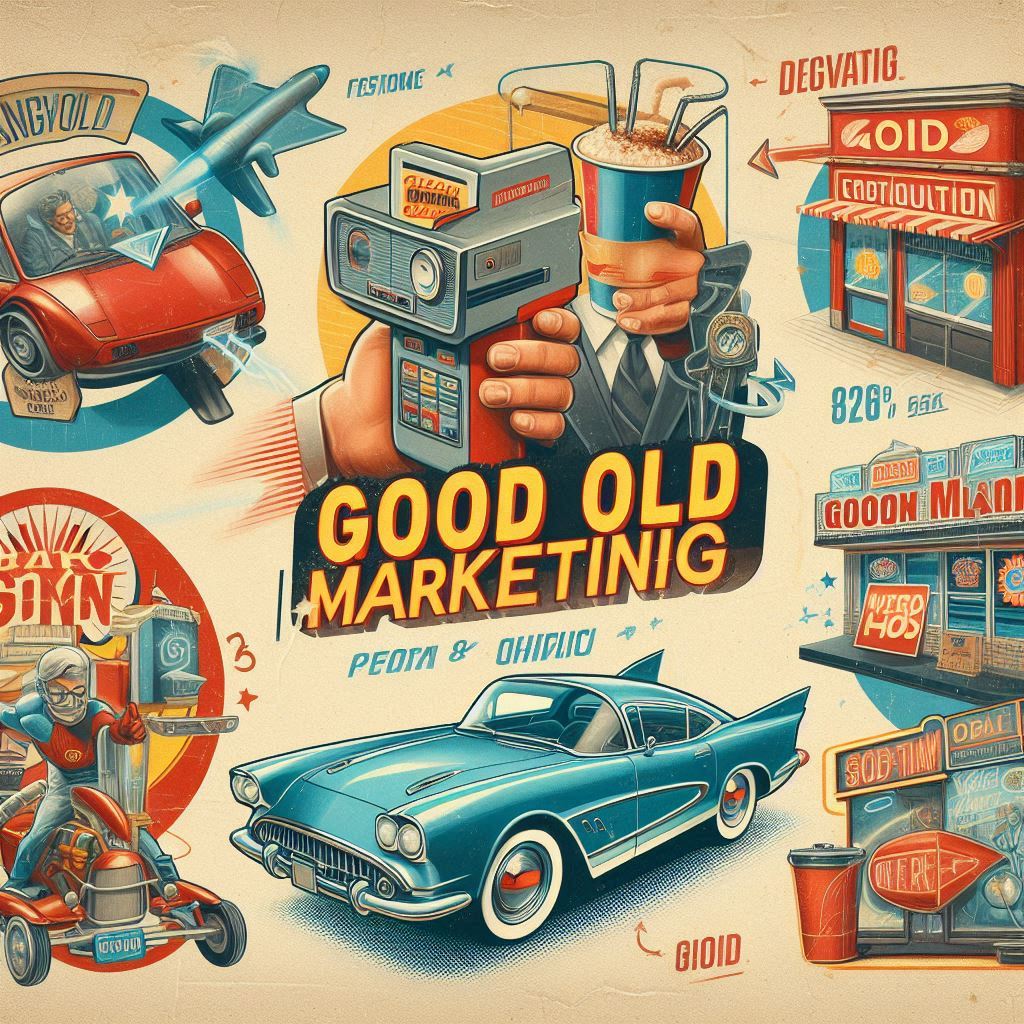Let´s take a look at what Don Draper would think about our AI marketing world.
As Don Draper, the charismatic and enigmatic creative director from Sterling Cooper in the 1960s. I find myself both intrigued and skeptical of these so-called advancements in marketing. Let me pour myself a whiskey and share my thoughts on this brave new world of AI, automation, and digitization.
If you don´t know me, which would really be weired if you are in marketing: here is a description
The Art of Persuasion vs. The Science of Data
In my day, marketing was an art form. We didn’t have mountains of data to sift through or algorithms to crunch numbers. We had intuition, creativity, and a deep understanding of the human psyche. Our job was to tap into the emotions and desires of the American public, to create a connection between product and consumer that transcended mere functionality.
This new world of AI-driven marketing seems to have lost sight of that human touch. Sure, these machines can analyze patterns and predict behaviors, but can they understand the raw emotion behind a housewife’s choice of lipstick or a businessman’s preference for a particular brand of cigarettes? I think not.
The Personal Touch in an Impersonal Age
They tell me that nowadays, marketing campaigns can be personalized for individual consumers. It sounds impressive, but I can’t help but wonder if it’s missing the point. When I crafted a campaign, I wasn’t just selling a product; I was selling a dream, a lifestyle, an aspiration. Can an AI understand the subtle nuances of human desire and ambition?
Take our Lucky Strike campaign, “It’s Toasted.” It wasn’t about the tobacco or even the process. It was about making people feel good about their choice, giving them a reason to choose our brand over any other. Would an AI have come up with that? I doubt it.
Read about a personal touch here in our article AI for emotion based Marketing
The Speed of Progress vs. The Power of Reflection
I’m told that in your time, campaigns can be created, launched, and optimized in a matter of hours. It’s a far cry from the days when we’d spend weeks, even months, perfecting a single tagline or visual. But I wonder, in all this rush to be faster and more efficient, are we losing the time for true inspiration to strike?
Some of my best ideas came not from staring at a brief, but from observing life, from conversations in bars, from the way the light hit a woman’s hair as she walked down Madison Avenue. Can an AI have those moments of human observation and inspiration?
The Role of the Marketer in a Mechanized World
If I were transported to your time, I imagine I’d find myself in a world where much of the grunt work of marketing has been automated. Data analysis, media buying, even some creative tasks – all handled by machines. But here’s what I believe: the true essence of marketing, the ability to understand and speak to the human heart, can never be fully automated.
In my world, a great marketer was part artist, part psychologist, part salesman. We didn’t just sell products; we sold emotions, dreams, and identities. An AI might be able to optimize a campaign for clicks or conversions, but can it create a campaign that becomes part of the cultural zeitgeist?
Embracing Change While Preserving the Core
Don’t get me wrong – I’m not against progress. If I had access to the kind of data and tools you have today, I’d certainly use them. But I’d use them to enhance my understanding of the consumer, not to replace my intuition and creativity.
The danger, as I see it, is in relying too heavily on technology and forgetting the fundamental truth of our business: at its core, marketing is about connecting with people on a human level. It’s about understanding their hopes, fears, and desires, and showing them how our product fits into their vision of a better life.
The Future of Marketing: Man and Machine
So, what’s the future of marketing in this brave new world? What would Don Draper do with AI for marketing? I believe it lies in finding the perfect balance between the efficiency and insights provided by AI and the irreplaceable human touch. Use your machines to crunch numbers and spot trends, but never forget that behind every data point is a human being with complex emotions and motivations.
The marketer of the future should be as comfortable analyzing data as they are crafting a compelling narrative. They should use AI as a tool to enhance their creativity, not as a crutch to replace it.
In the end, whether it’s 1960 or 2060, the essence of great marketing remains the same: to tell a story that resonates with the human spirit. And that, my friends, is something no machine can ever truly master.
Now, if you’ll excuse me, I have a client meeting to prepare for. In this business, the only thing that really matters is what you do next.
You can find more about the future of AI in marketing without humans here



